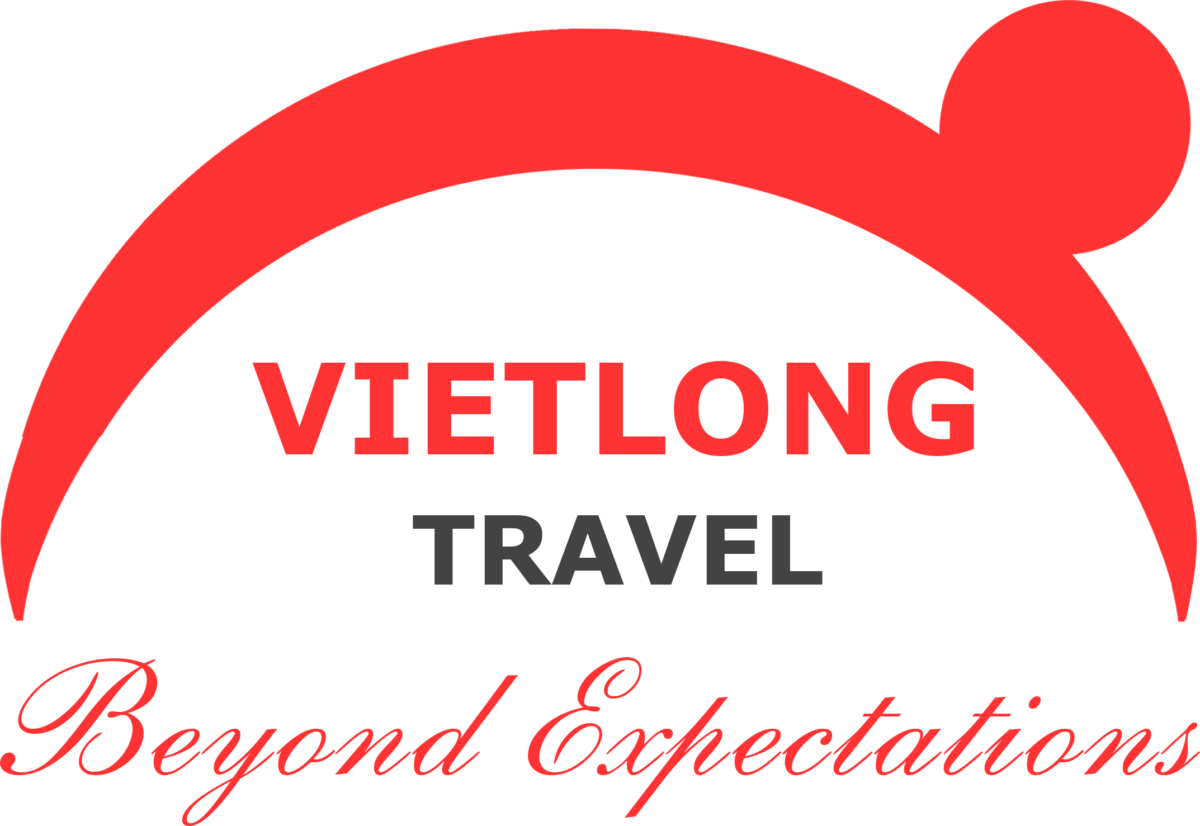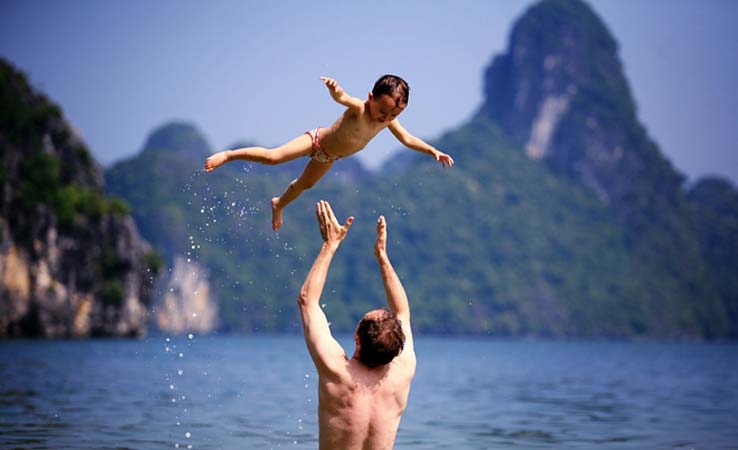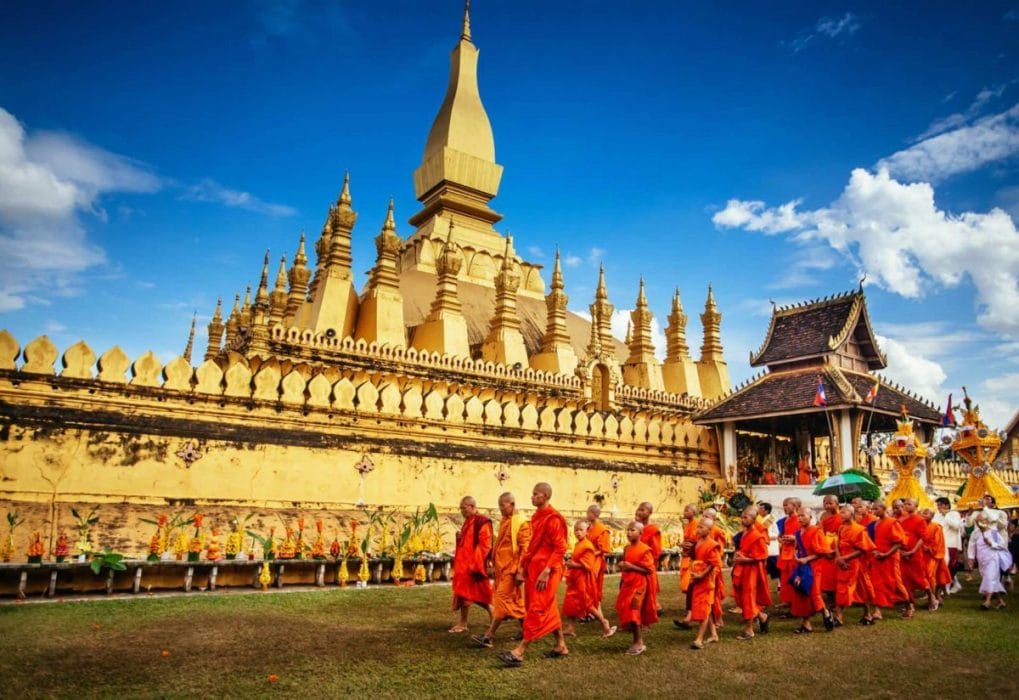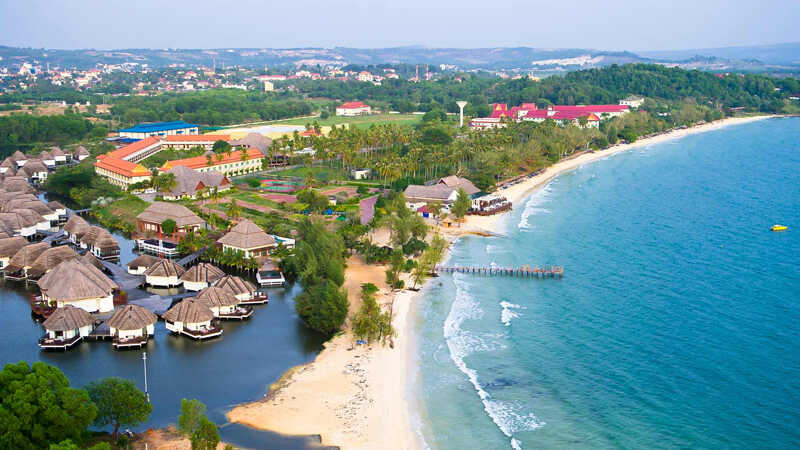Embarking on a Mekong Delta River Cruise from Can Tho to Phnom Penh is not just a journey through scenic landscapes but also a deep dive into the rich cultural tapestry of Southeast Asia. This route offers travelers the opportunity to explore a variety of cultural experiences, from bustling floating markets and traditional villages to ancient temples and vibrant local performances. Here’s a detailed look at the top cultural experiences you can enjoy on this unique voyage.
1. Introduction
The Mekong River flows through several countries, each contributing its own cultural essence to the river’s vibrant mosaic. The journey from Can Tho in Vietnam to Phnom Penh in Cambodia is particularly rich in cultural experiences, offering travelers a chance to engage with local communities, explore historical sites, and enjoy traditional arts and crafts.
2. Floating Markets: The Heart of Mekong Commerce
2.1 Overview of Floating Markets
The floating markets of the Mekong Delta are a quintessential part of life on the river. These markets are lively, colorful, and brimming with the sights and sounds of local commerce. Boats laden with fruits, vegetables, flowers, and handcrafted goods glide through the water, creating a dynamic, ever-changing marketplace.
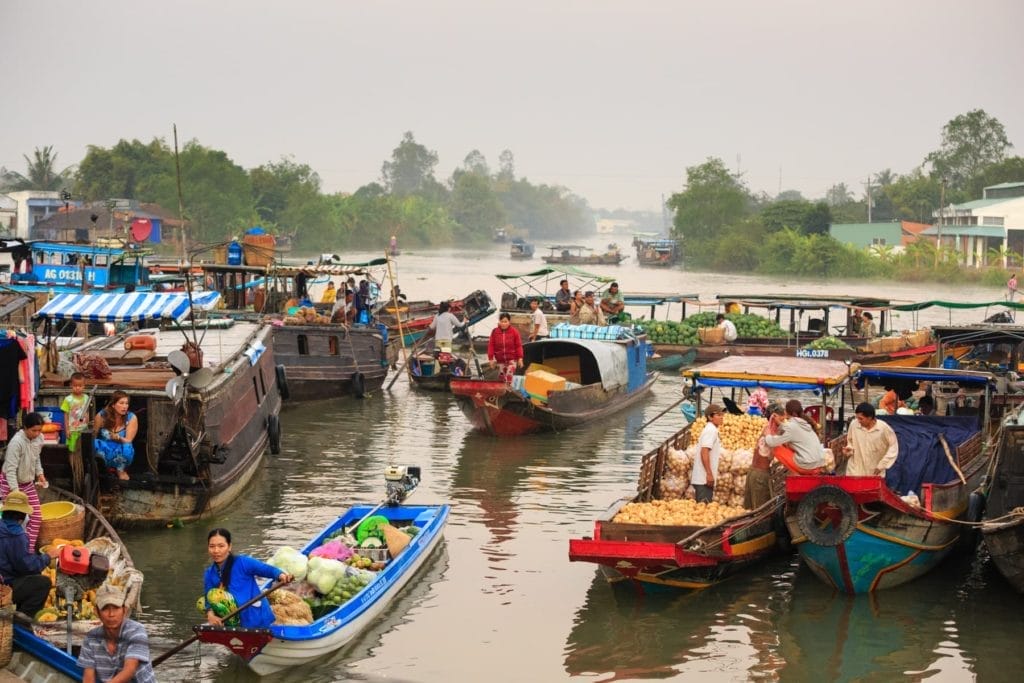
2.2 Cultural Significance
Floating markets like Cai Rang and Phong Dien are not only centers of trade but also hubs of cultural exchange. Here, you can observe the traditional barter system still in practice, where locals trade goods directly from boat to boat. This system has been a way of life for generations, reflecting the resourcefulness and adaptability of the Mekong Delta’s residents.
2.3 What to Expect
When visiting these markets, expect to see a vast array of products, from freshly harvested fruits to handmade crafts. Engage with friendly local vendors, and don’t miss the chance to sample traditional Mekong Delta snacks such as banh xeo (Vietnamese savory pancakes) or freshly cut pineapple. The experience offers a genuine glimpse into the daily lives of the people who call the Mekong home.
3. Traditional Villages and Handicrafts
Our Best Selling Tours:
3.1 Visit to Traditional Villages
The Mekong River is lined with villages that have maintained their traditional way of life despite the encroaching modern world. A visit to these villages provides an authentic look at rural Vietnamese culture, where you can see traditional stilt houses, rice paddies, and villagers going about their daily routines.

3.2 Handicraft Workshops
Many boat trips include stops at workshops where you can watch artisans create beautiful handicrafts using age-old techniques. From silk weaving in traditional looms to pottery making with local clay, these workshops offer a hands-on experience that allows you to learn about the artistry and craftsmanship passed down through generations.
3.3 Cultural Impact
These traditional crafts are more than just souvenirs; they are a vital part of the cultural identity of the Mekong Delta. Engaging in these activities not only supports local artisans but also helps preserve these important cultural practices.
4. Religious and Spiritual Sites
4.1 Temples and Pagodas
As you travel along the Mekong River, you’ll come across numerous temples and pagodas that reflect the region’s spiritual diversity. The Vinh Trang Pagoda, located near My Tho, is a must-visit. This beautiful Buddhist temple is renowned for its giant Buddha statues and lush gardens, offering a peaceful retreat from the hustle and bustle of the river.
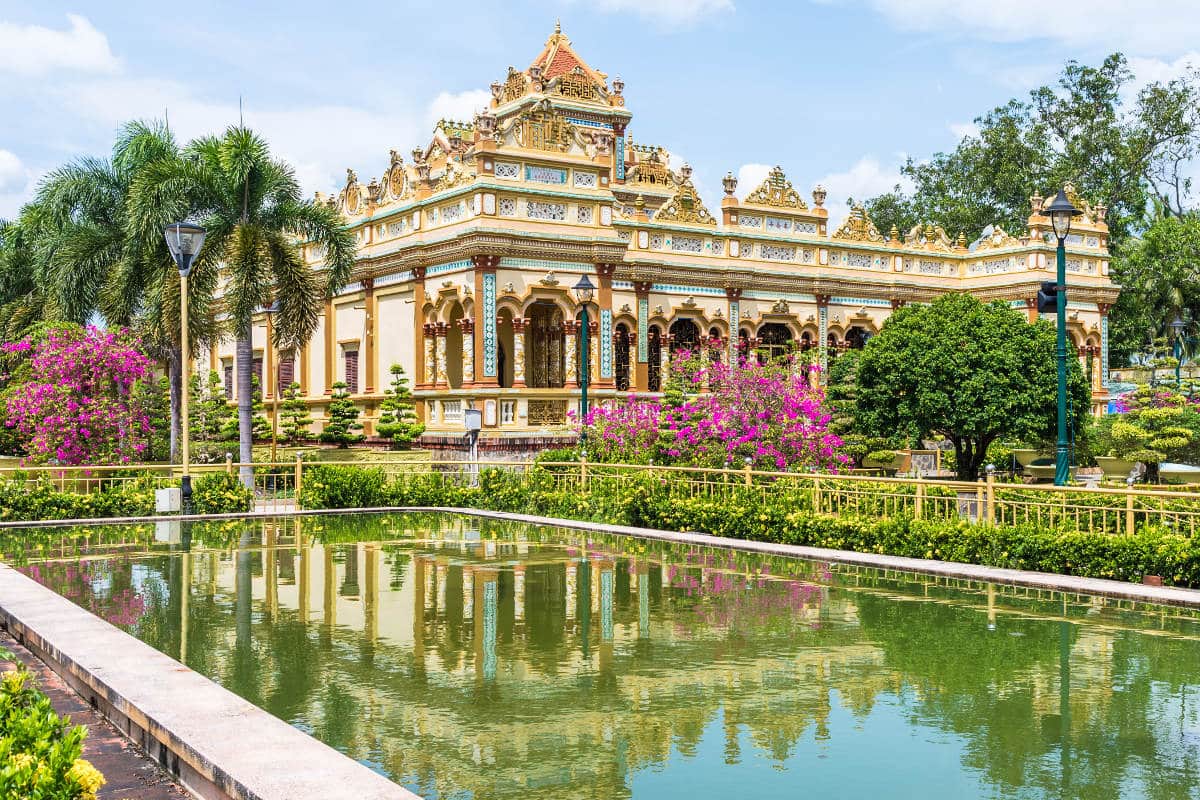
4.2 Spiritual Practices
Many temples along the Mekong are active places of worship where you can observe or even participate in local spiritual practices. Witnessing a traditional Buddhist ceremony or offering incense at a shrine provides a deeper understanding of the spiritual life of the region.
4.3 Architectural Highlights
The temples and pagodas along the Mekong showcase a blend of architectural styles influenced by Vietnamese, Khmer, and Chinese cultures. From intricate carvings and statues to colorful murals and altars, these sites are a testament to the rich cultural and spiritual heritage of the region.
5. Local Cuisine and Culinary Experiences
5.1 Introduction to Mekong Delta Cuisine
Food is an integral part of any cultural experience, and the Mekong Delta is no exception. The cuisine here is known for its fresh ingredients, bold flavors, and unique cooking methods, often involving the use of abundant local produce and fish.
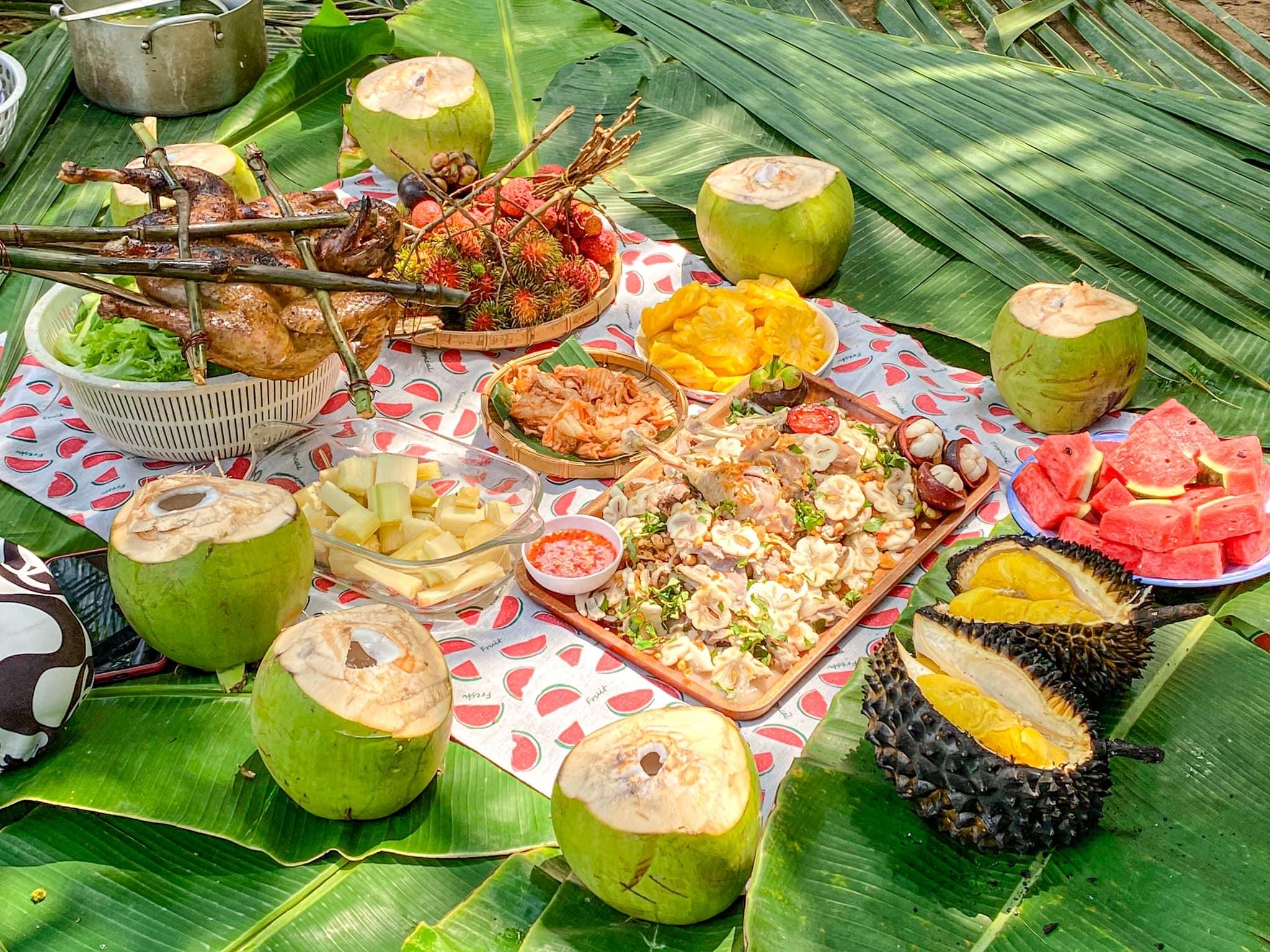
5.2 Onboard Cooking Classes
Many Mekong River cruises offer cooking classes where you can learn to prepare traditional dishes such as pho (Vietnamese noodle soup) or banh xeo. These classes provide a fun and interactive way to learn about the region’s culinary traditions and take home a taste of the Mekong.
5.3 Dining with Locals
Some boat trips include opportunities to dine with local families, offering a unique chance to experience authentic Vietnamese hospitality and home-cooked meals. Sharing a meal with locals is a wonderful way to learn about their customs and traditions and enjoy dishes that have been passed down through generations.
6. Cultural Performances and Entertainment
6.1 Traditional Music and Dance
Cultural performances are a highlight of many Mekong River cruises. Traditional Vietnamese music, known as “Don Ca Tai Tu,” is often performed onboard, along with Khmer dance performances. These art forms are not only entertaining but also provide insights into the cultural history of the region.
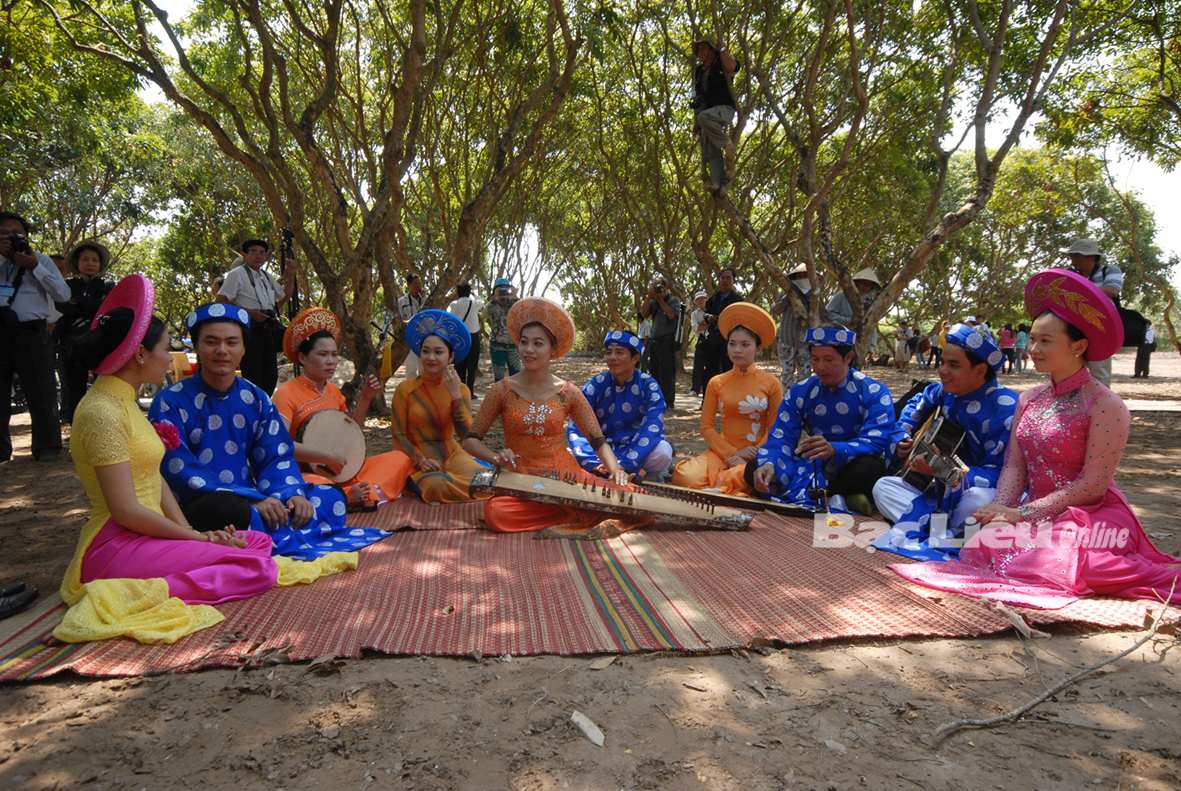
6.2 Interactive Workshops
In addition to performances, some cruises offer workshops where you can learn traditional dance moves or try your hand at playing traditional instruments. These interactive experiences are a fun way to immerse yourself in the local culture.
6.3 Nightly Entertainment
Evenings on the Mekong are often filled with cultural shows, themed dinners, and guest performances. These events are designed to enhance your understanding of the region’s diverse cultural landscape while providing entertainment.
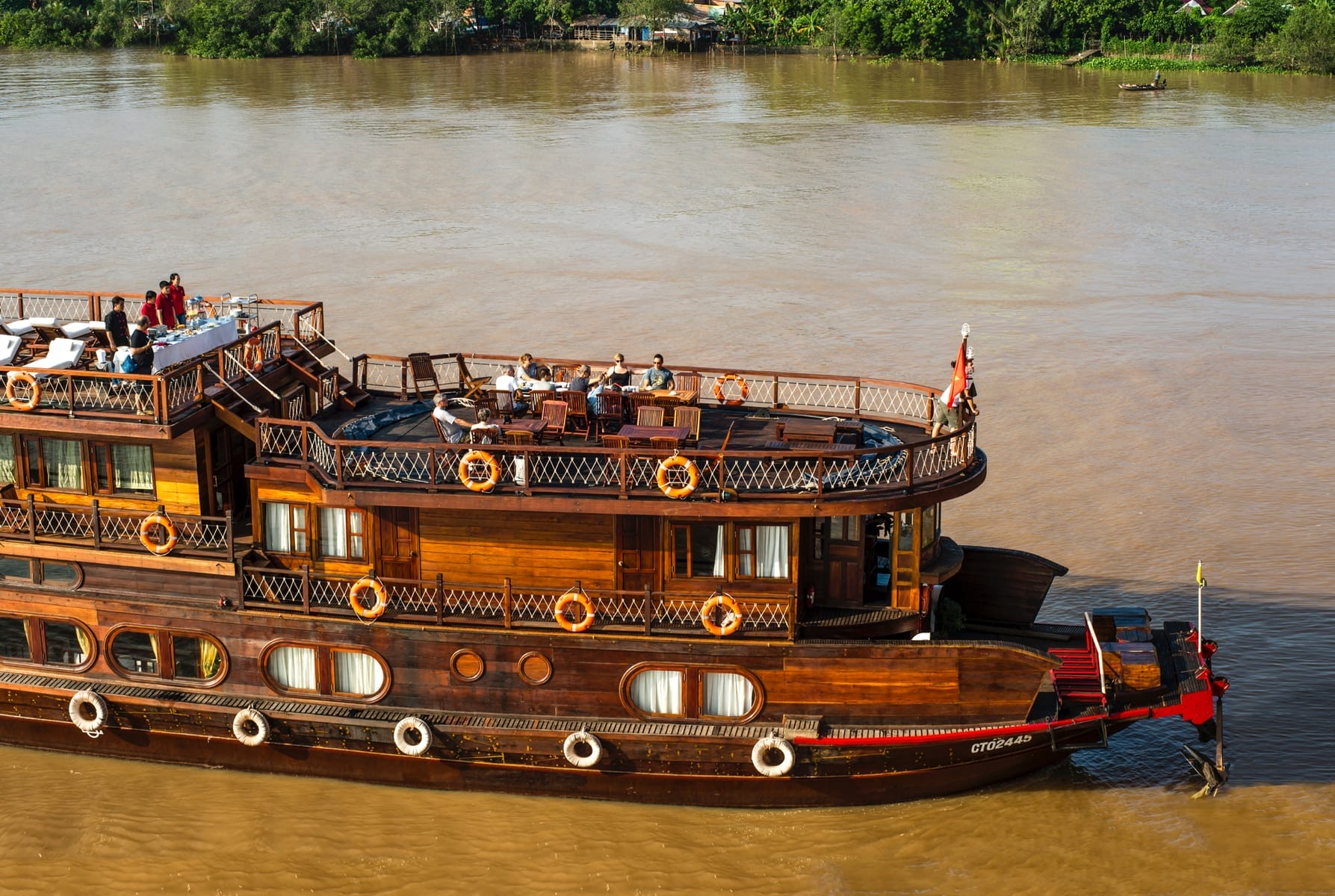
7. Practical Tips for Experiencing Culture on the Mekong River
7.1 Respectful Engagement
When visiting local communities and cultural sites, it’s important to be respectful of local customs and traditions. Dress modestly, especially when visiting temples, and be mindful of local etiquette.
7.2 What to Bring
To enhance your cultural experience, bring a camera, a notebook for jotting down observations, and a sense of curiosity. Comfortable clothing and appropriate footwear are also recommended for exploring villages and temples.
7.3 Booking a Culturally Rich Boat Trip
When selecting a Mekong River cruise, look for itineraries that include a variety of cultural experiences, such as visits to villages, cooking classes, and cultural performances. A reputable operator like Vietlong Travel offers comprehensive tours that provide deep cultural immersion.
Frequently Asked Questions
- What cultural activities are included in a Mekong River cruise from Can Tho to Phnom Penh? Most cruises include visits to floating markets, traditional villages, temples, and onboard cultural performances.
- Can I participate in local cultural activities during the boat trip? Yes, many cruises offer interactive activities like cooking classes, craft workshops, and participation in local festivals.
- What should I wear when visiting temples or local villages along the Mekong River? It’s advisable to wear modest clothing that covers your shoulders and knees when visiting religious sites or local communities.
- Are there opportunities to try local food on the boat trip? Most cruises offer local cuisine onboard, and some include dining experiences with local families or at floating markets.
- How do I book a culturally immersive boat trip from Can Tho to Phnom Penh? You can book through travel agencies or directly with cruise operators like Vietlong Travel, which offer tours focusing on cultural experiences.
